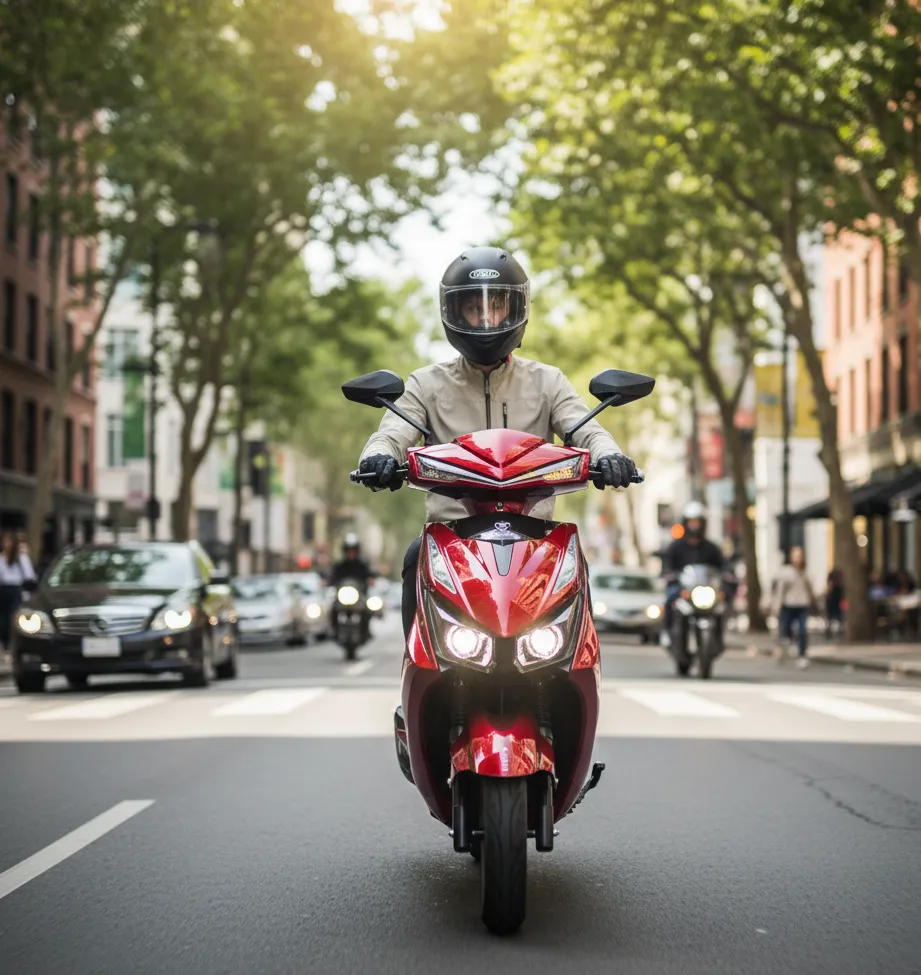As an e-scooter exporter, clear communication with international clients is the foundation of successful transactions. Two frequently asked topics in our industry are international trade terms (specifically FOB, CFR, CIF) and the critical role of shipping agents. In this blog, we’ll break down these essential concepts to help you navigate global logistics with confidence.
Demystifying FOB, CFR, and CIF: What Do They Mean for Your E-Scooter Business?
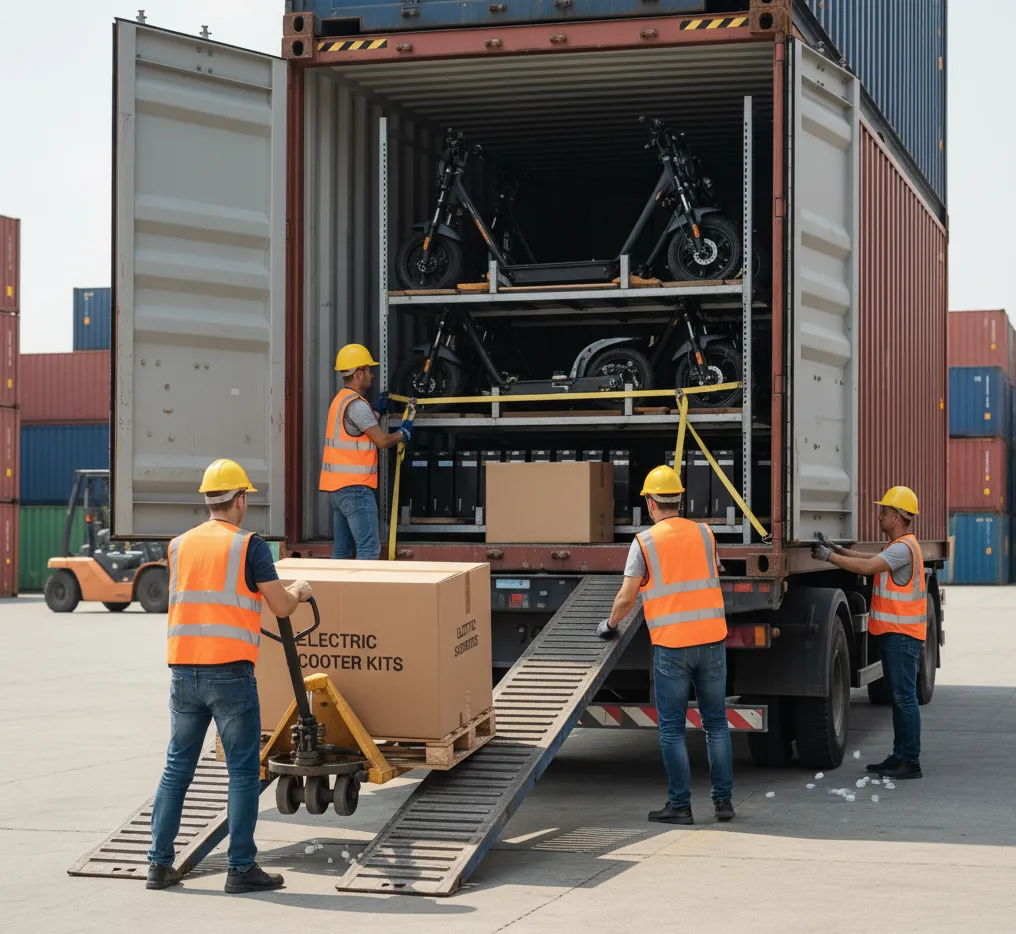
1. Free on Board (FOB)
Definition & Responsibilities:
FOB stands for “Free on Board” the named port of shipment. Under this term, the seller is responsible for delivering e-scooters onto the carrier’s vessel at the agreed port (e.g., FOB Shanghai). Your obligations include:
- Packaging goods to withstand ocean transport (e-scooters require secure packaging for batteries and frames).
- Clearing export customs and providing necessary documents (commercial invoice, packing list, bill of lading).
- Covering costs until the goods are loaded onto the ship.
Once the cargo is on board, risk and costs transfer to the buyer—they handle ocean freight, insurance, and import duties at the destination.
Why Use FOB?
Ideal for clients who prefer managing their own logistics or have established relationships with shipping partners. It offers transparency in cost allocation for sellers.
2. Cost and Freight (CFR)
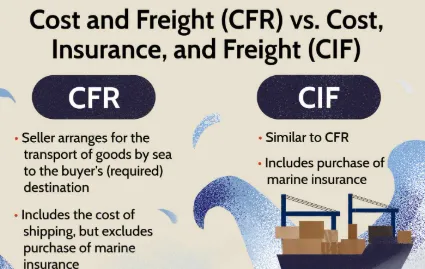
Definition & Responsibilities:
CFR means the seller pays for ocean freight to the named port of destination but not insurance. Like FOB, risk transfers when goods are loaded onto the vessel. Key differences:
- Sellers calculate and include freight costs in the quote (critical for e-scooters, where volume and weight impact rates).
- Buyers must arrange marine insurance separately (we recommend advising clients on coverage for lithium-ion batteries, which may require special policies).
Why Use CFR?
Balances seller responsibility for freight with buyer control over insurance—popular with clients who have preferred insurers or specific risk management needs.
3. Cost, Insurance, and Freight (CIF)
Definition & Responsibilities:
CIF is the most comprehensive term: sellers cover costs, freight, and marine insurance to the destination port. While risk still transfers at the port of shipment, sellers secure insurance (typically 110% of the cargo value per INCOTERMS® 2020) to protect the buyer’s interest during transit.
Why Use CIF?
A customer-friendly option, especially for new buyers unfamiliar with logistics. It simplifies the process by bundling key costs, making your offer more attractive. For e-scooters, ensure insurance covers damage from transit vibrations or moisture—common risks for electric vehicles.
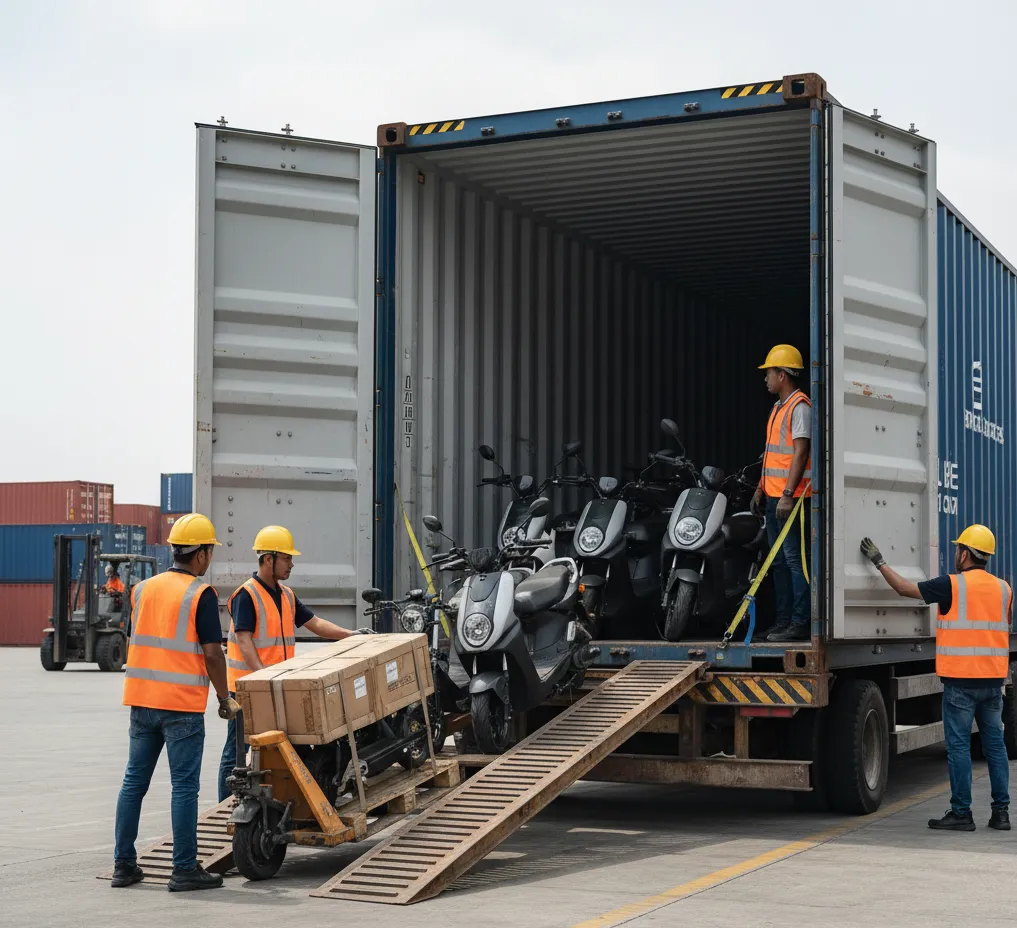
Why a Shipping Agent Is Your Partner in Global Logistics
Shipping e-scooters internationally involves complex regulations, documentation, and logistics. A professional shipping agent streamlines this process in five key ways:
1. Expertise in Regulatory Compliance
- Customs & Safety Standards: E-scooters with lithium batteries must comply with UN38.3 testing for air/sea transport (critical for destinations like the EU, which enforces strict battery safety rules).
- Documentation Mastery: Agents handle bills of lading, certificates of origin, and ATA carnet (for temporary shipments), ensuring no delays due to paperwork errors.
2. Cost-Effective Shipping Strategies
- Carrier Negotiations: Leveraging relationships with shipping lines, agents secure discounted rates—especially important for large e-scooter shipments, where sea freight (cheaper but slower) vs. air freight (faster but pricier) decisions impact profitabil
- Route Optimization: They analyze port efficiencies (e.g., avoiding congestion at major hubs during peak seasons) to balance speed and cost.
3. Risk Mitigation
- Cargo Protection: Agents advise on packaging (e.g., wooden crating for bulk orders) and recommend insurance add-ons for high-value components like motors and batteries.
- Contingency Planning: In case of delays (e.g., port strikes or customs holds), they provide alternative solutions to minimize supply chain disruptions.
4. Door-to-Door Convenience
Many agents offer end-to-end services:
- Pickup from your factory
- Transit (sea/air/rail)
- Customs clearance at origin and destination
- Final delivery to the buyer’s warehouse
This is a game-changer for clients without in-house logistics teams—especially small retailers or startups.
5. Local Market Insights
Agents understand regional nuances:
- Tariff Classification: Correctly categorizing e-scooters under HS codes (e.g., 8711.60 for motorized bicycles) to avoid overpaying duties.
- Cultural Logistics: Knowledge of delivery preferences in markets like Japan (strict time slots) or Brazil (complex import processes), ensuring a seamless experience for your clients.
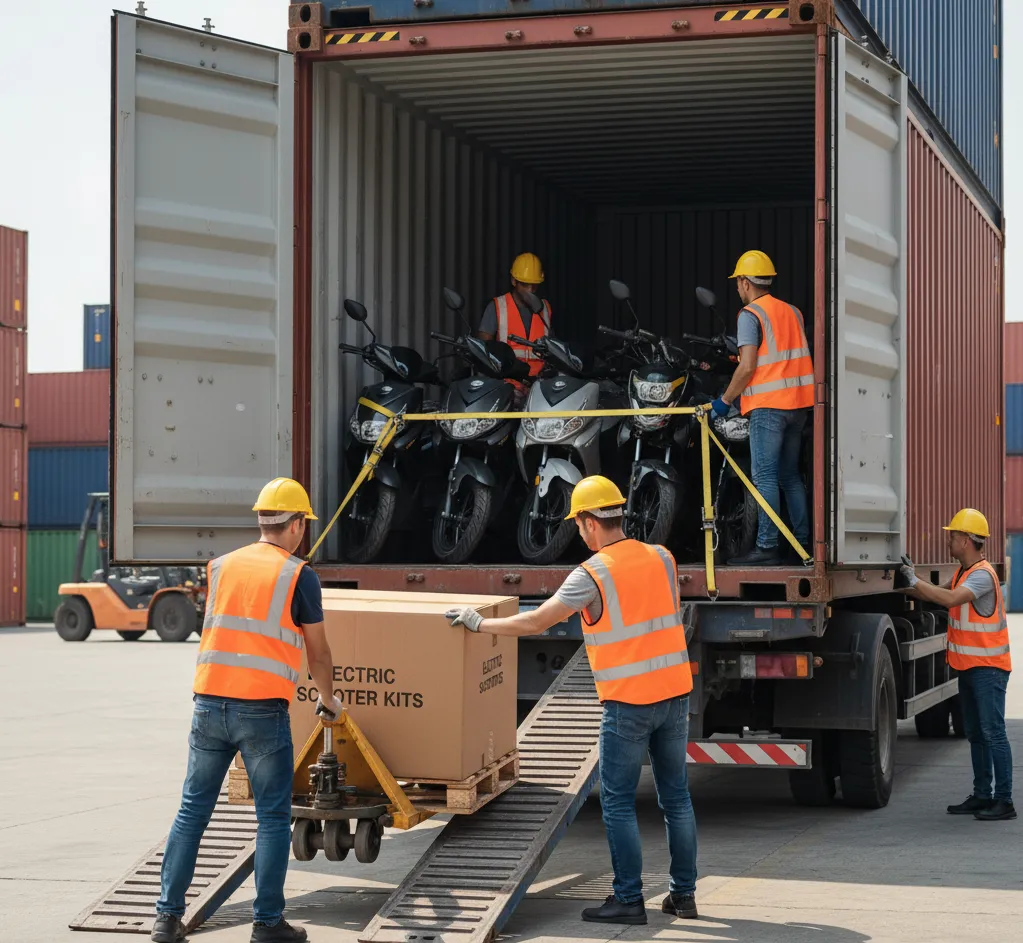
Choosing the Right Term & Partner for Your E-Scooter Business
FOB, CFR, and CIF each have unique advantages—align your choice with client needs (e.g., CIF for first-time buyers, FOB for experienced importers). Pair these terms with a reliable shipping agent to:
- Reduce administrative burdens
- Minimize costs through expert negotiation
- Ensure compliance with global safety and customs standards
By mastering these concepts, you’ll not only answer client questions effectively but also position your business as a trusted partner in the e-scooter global supply chain.
Ready to discuss how we can tailor these terms to your next shipment? Contact our logistics team today for a personalized quote.

